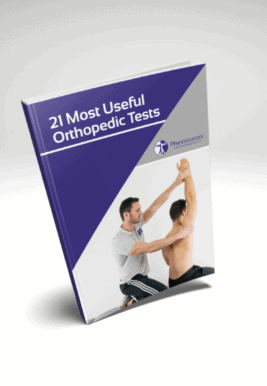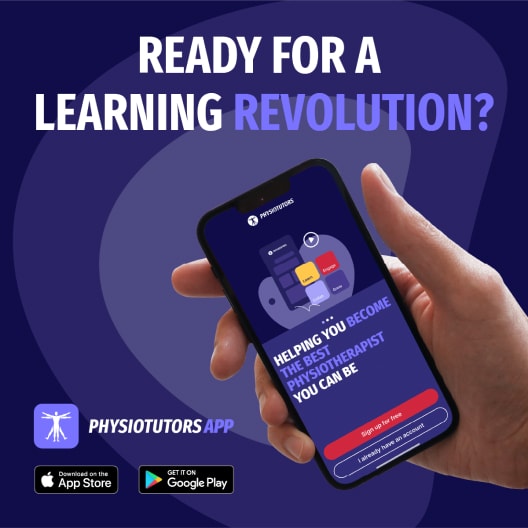Learn
Coracoid Pain Test | (Pseudo-)Frozen Shoulder Assessment
Hoffmann et al. (2015) did a study on the amount of active muscle guarding in patients suspected to have frozen shoulder and found that all patients had experienced a huge increase in passive Abduction while under anesthesia. This means that the loss of range of motion in Frozen Shoulder cannot only be explained by a true capsular contraction alone but that active stiffness or muscle guarding can play a huge role as well.
The Coracoid pain test is described to have a sensitivity of 96% and a specificity of 87 to 89% according to Carbone et al. (2010) and is therefore useful to rule in and out Frozen Shoulder. Although this is the only study that has validated this test, it seems that this test has a high clinical value, especially to distinguish between real and pseudo-frozen shoulders, as well as other shoulder pathologies that can cause a stiff shoulder.
To perform this test, manually palpate the AC joint, the anterolateral subacromial area, and the coracoid process with your first digit and have your patients record the experienced pain on a VAS scale with each palpation. The test is considered positive for true Frozen Shoulders when pain on the coracoid region was more severe than 30 millimeters on the VASscale with respect to the acromioclavicular joint and the anterolateral subacromial area. The clinical reasoning behind this test is that characteristic findings on MRI for frozen shoulder are a thickening of the coracohumeral ligament, the rotator cuff interval, and the coracoid triangle which are sensitive to pressure.
21 OF THE MOST USEFUL ORTHOPAEDIC TESTS IN CLINICAL PRACTICE

Another test for Frozen Shoulder is the Shoulder Shrug Sign. However, the official diagnosis of Frozen Shoulder is done by certain criteria on passive range of motion restriction.
References
References
Like what you’re learning?
BUY THE FULL PHYSIOTUTORS ASSESSMENT BOOK
- 600+ Pages e-Book
- Interactive Content (Direct Video Demonstration, PubMed articles)
- Statistical Values for all Special Tests from the latest research
- Available in 🇬🇧 🇩🇪 🇫🇷 🇪🇸 🇮🇹 🇵🇹 🇹🇷
- And much more!








